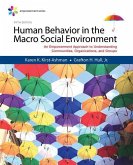Kim M Brown, Tony Frontier, Donald J Viegut
The Clarity Series: Creating Passionate Learners
Engaging Today′s Students for Tomorrow′s World
Kim M Brown, Tony Frontier, Donald J Viegut
The Clarity Series: Creating Passionate Learners
Engaging Today′s Students for Tomorrow′s World
- Broschiertes Buch
- Merkliste
- Auf die Merkliste
- Bewerten Bewerten
- Teilen
- Produkt teilen
- Produkterinnerung
- Produkterinnerung
Increase student engagement and decrease dropouts. Student engagement is a defining factor for student success. However, a lack of consensus on the definition of "engagement" makes this difficult. But it can be made easier with a common engagement literacy - a simple understanding of how to maximize engagement in any school. This book offers the first comprehensive system for defining engagement and optimizing it in any student cohort. Content includes: * How to optimize teacher feedback methods for maximum engagement * The power of mindset (for both educators and students). * Key vocabulary terms for furthering the engagement process.…mehr
Andere Kunden interessierten sich auch für
![The Teacher Clarity Playbook, Grades K-12 The Teacher Clarity Playbook, Grades K-12]() Douglas FisherThe Teacher Clarity Playbook, Grades K-1230,99 €
Douglas FisherThe Teacher Clarity Playbook, Grades K-1230,99 €![Manual for Teachers Manual for Teachers]() Sarah Louise ArnoldManual for Teachers24,99 €
Sarah Louise ArnoldManual for Teachers24,99 €![Bundle: Interviewing and Change Strategies for Helpers, 8th + Empowerment Series: Understanding Generalist Practice, 8th + Empowerment Series: The Skills of Helping Individuals, Families, Groups, and Communities, Enhanced, 8th + Brooks/Cole Empowerment Ser Bundle: Interviewing and Change Strategies for Helpers, 8th + Empowerment Series: Understanding Generalist Practice, 8th + Empowerment Series: The Skills of Helping Individuals, Families, Groups, and Communities, Enhanced, 8th + Brooks/Cole Empowerment Ser]() Sherry CormierBundle: Interviewing and Change Strategies for Helpers, 8th + Empowerment Series: Understanding Generalist Practice, 8th + Empowerment Series: The Skills of Helping Individuals, Families, Groups, and Communities, Enhanced, 8th + Brooks/Cole Empowerment Ser796,99 €
Sherry CormierBundle: Interviewing and Change Strategies for Helpers, 8th + Empowerment Series: Understanding Generalist Practice, 8th + Empowerment Series: The Skills of Helping Individuals, Families, Groups, and Communities, Enhanced, 8th + Brooks/Cole Empowerment Ser796,99 €![The Best Lesson Series: Literature: 15 Master Teachers Share What Works The Best Lesson Series: Literature: 15 Master Teachers Share What Works]() The Best Lesson Series: Literature: 15 Master Teachers Share What Works21,99 €
The Best Lesson Series: Literature: 15 Master Teachers Share What Works21,99 €![Empowerment Series: Human Behavior in the Macro Social Environment Empowerment Series: Human Behavior in the Macro Social Environment]() Karen K. Kirst-AshmanEmpowerment Series: Human Behavior in the Macro Social Environment225,99 €
Karen K. Kirst-AshmanEmpowerment Series: Human Behavior in the Macro Social Environment225,99 €![Motivating Learners in the Classroom Motivating Learners in the Classroom]() Gavin ReidMotivating Learners in the Classroom62,99 €
Gavin ReidMotivating Learners in the Classroom62,99 €![Cultivating Genius: The Why and How of Creating a 20% Time Learning Environment Cultivating Genius: The Why and How of Creating a 20% Time Learning Environment]() Don EckertCultivating Genius: The Why and How of Creating a 20% Time Learning Environment18,99 €
Don EckertCultivating Genius: The Why and How of Creating a 20% Time Learning Environment18,99 €-
-
-
Increase student engagement and decrease dropouts. Student engagement is a defining factor for student success. However, a lack of consensus on the definition of "engagement" makes this difficult. But it can be made easier with a common engagement literacy - a simple understanding of how to maximize engagement in any school. This book offers the first comprehensive system for defining engagement and optimizing it in any student cohort. Content includes: * How to optimize teacher feedback methods for maximum engagement * The power of mindset (for both educators and students). * Key vocabulary terms for furthering the engagement process.
Hinweis: Dieser Artikel kann nur an eine deutsche Lieferadresse ausgeliefert werden.
Hinweis: Dieser Artikel kann nur an eine deutsche Lieferadresse ausgeliefert werden.
Produktdetails
- Produktdetails
- Verlag: Sage Publications
- Seitenzahl: 224
- Erscheinungstermin: 15. Juli 2015
- Englisch
- Abmessung: 226mm x 152mm x 18mm
- Gewicht: 363g
- ISBN-13: 9781483344485
- ISBN-10: 1483344487
- Artikelnr.: 42316476
- Herstellerkennzeichnung
- Libri GmbH
- Europaallee 1
- 36244 Bad Hersfeld
- gpsr@libri.de
- Verlag: Sage Publications
- Seitenzahl: 224
- Erscheinungstermin: 15. Juli 2015
- Englisch
- Abmessung: 226mm x 152mm x 18mm
- Gewicht: 363g
- ISBN-13: 9781483344485
- ISBN-10: 1483344487
- Artikelnr.: 42316476
- Herstellerkennzeichnung
- Libri GmbH
- Europaallee 1
- 36244 Bad Hersfeld
- gpsr@libri.de
Foreword by Dr. Russell J. Quaglia
Preface
Acknowledgments
About the Authors
1. An Introduction to Creating Passionate Learners
The Educational Anachronism
Beyond the Next Mandate
The Intent of Policies and the Ensuing Debates
Assumptions Driving the Current Context
An Alternate Premise: A Humanist Approach to Education and Cognitivist
Approaches to Learning
From Past Practice to Next Practice: New Assumptions for Schools in the
21st Century
2. Committing to Engagement Literacy
Test Scores Tell Only Part of the Story
In Search of Something More
Defining Student Engagement
Why Engagement is Important
Mistaking Compliance for Engagement
A More Nuanced Viewed: Types of Student Engagement
Engagement as Malleable: Classrooms and Schools Matter
3. The Power of Mindset
Mindset
Power of Effort
Leveraging Mindset
Changing our Mental Models About Mindset to Affect Student Engagement
Efficiency for Adults and Effectiveness for Students
Making Learner Psychology Relevant
Migrating from a Fixed to a Growth Mindset
The Implications of Growth Mindset for Emotional, Behavioral, and Cognitive
Engagement
The Importance of Dispositions
Dispositions: Now and in the Future
Dispositions Nested in the Framework for Creating Passionate Learners
Growth Mindset Dispositions
Classroom Strategies for Strengthening Student Dispositions
How Growth Mindset Supports Passionate Learners
4. Internal Dialogue: Reengage Learners Using Teacher Feedback
Internal Dialogue
Use Positive Suppositions to Influence Students' Views of Themselves and
Translate to Confidence in the Classroom
Develop Students' Internal Dialogue by Using Language Intentionally
Efficacy Through Deliberate Language
Using Careful Feedback to Aid in Students' Reflection
Valuing Student Voice in Feedback
Formative Assessment and Formative Feedback Strategies
When Students Self-Correct
The Implications of Internal Dialogue for Emotional, Behavioral, and
Cognitive Engagement
Internal Dialogue Dispositions
How Internal Dialogue Supports Passionate Learners
5. Self-Determination
Self-Determination Theory
Differences Between Autonomy Supportive and Controlling Teachers
The Implications of Self-Determination for Emotional, Behavioral, and
Cognitive Engagement
Self-Determination Dispositions
Self-Determination Through the Teacher's Eyes
How Self-Determination Support Passionate Learners
6. Classroom Culture: Setting the Tone for Engagement
Culture Defined
A Culture of Purpose and Commitment to Support Cognitive Engagement
Cognitive Engagement as a Culture of Learning or a Culture of Performance?
Cognitive Engagement as a Culture of Inquiry or a Culture of Right Answers?
A Culture of Purpose and Commitment to Support Emotional Engagement
Emotional Engagement as a Culture of Judging or a Culture of Understanding?
Emotional Engagement as a Culture of Me or We?
A Culture of Purpose to Support Behavioral Engagement
Behavioral Engagement in a Culture of Compliance or Authenticity?
Behavioral Engagement as a Culture of Low Expectations or Expertise?
Passion Deflators
The Teacher Whisperer
Culture Dispositions
How Culture Support Passionate Learners
7. High-Leverage Reforms
Student Engagement as the Filter for High-Leverage Reform
Case Studies: Transactional and Transformational
Considerations and Implications in Determining High-Leverage Reform
Strategies
8. Leading the Transformation for Creating Passionate Learners
Planning for Transformational Change and the System Work of School Leaders
Transformational Leadership in Action
Influencing a Heightened Leader Commitment to Student Engagement
Guiding Leaders¿ Focus on Student Engagement
Appendix: Effort Tracker
Resources
Index
Preface
Acknowledgments
About the Authors
1. An Introduction to Creating Passionate Learners
The Educational Anachronism
Beyond the Next Mandate
The Intent of Policies and the Ensuing Debates
Assumptions Driving the Current Context
An Alternate Premise: A Humanist Approach to Education and Cognitivist
Approaches to Learning
From Past Practice to Next Practice: New Assumptions for Schools in the
21st Century
2. Committing to Engagement Literacy
Test Scores Tell Only Part of the Story
In Search of Something More
Defining Student Engagement
Why Engagement is Important
Mistaking Compliance for Engagement
A More Nuanced Viewed: Types of Student Engagement
Engagement as Malleable: Classrooms and Schools Matter
3. The Power of Mindset
Mindset
Power of Effort
Leveraging Mindset
Changing our Mental Models About Mindset to Affect Student Engagement
Efficiency for Adults and Effectiveness for Students
Making Learner Psychology Relevant
Migrating from a Fixed to a Growth Mindset
The Implications of Growth Mindset for Emotional, Behavioral, and Cognitive
Engagement
The Importance of Dispositions
Dispositions: Now and in the Future
Dispositions Nested in the Framework for Creating Passionate Learners
Growth Mindset Dispositions
Classroom Strategies for Strengthening Student Dispositions
How Growth Mindset Supports Passionate Learners
4. Internal Dialogue: Reengage Learners Using Teacher Feedback
Internal Dialogue
Use Positive Suppositions to Influence Students' Views of Themselves and
Translate to Confidence in the Classroom
Develop Students' Internal Dialogue by Using Language Intentionally
Efficacy Through Deliberate Language
Using Careful Feedback to Aid in Students' Reflection
Valuing Student Voice in Feedback
Formative Assessment and Formative Feedback Strategies
When Students Self-Correct
The Implications of Internal Dialogue for Emotional, Behavioral, and
Cognitive Engagement
Internal Dialogue Dispositions
How Internal Dialogue Supports Passionate Learners
5. Self-Determination
Self-Determination Theory
Differences Between Autonomy Supportive and Controlling Teachers
The Implications of Self-Determination for Emotional, Behavioral, and
Cognitive Engagement
Self-Determination Dispositions
Self-Determination Through the Teacher's Eyes
How Self-Determination Support Passionate Learners
6. Classroom Culture: Setting the Tone for Engagement
Culture Defined
A Culture of Purpose and Commitment to Support Cognitive Engagement
Cognitive Engagement as a Culture of Learning or a Culture of Performance?
Cognitive Engagement as a Culture of Inquiry or a Culture of Right Answers?
A Culture of Purpose and Commitment to Support Emotional Engagement
Emotional Engagement as a Culture of Judging or a Culture of Understanding?
Emotional Engagement as a Culture of Me or We?
A Culture of Purpose to Support Behavioral Engagement
Behavioral Engagement in a Culture of Compliance or Authenticity?
Behavioral Engagement as a Culture of Low Expectations or Expertise?
Passion Deflators
The Teacher Whisperer
Culture Dispositions
How Culture Support Passionate Learners
7. High-Leverage Reforms
Student Engagement as the Filter for High-Leverage Reform
Case Studies: Transactional and Transformational
Considerations and Implications in Determining High-Leverage Reform
Strategies
8. Leading the Transformation for Creating Passionate Learners
Planning for Transformational Change and the System Work of School Leaders
Transformational Leadership in Action
Influencing a Heightened Leader Commitment to Student Engagement
Guiding Leaders¿ Focus on Student Engagement
Appendix: Effort Tracker
Resources
Index
Foreword by Dr. Russell J. Quaglia
Preface
Acknowledgments
About the Authors
1. An Introduction to Creating Passionate Learners
The Educational Anachronism
Beyond the Next Mandate
The Intent of Policies and the Ensuing Debates
Assumptions Driving the Current Context
An Alternate Premise: A Humanist Approach to Education and Cognitivist
Approaches to Learning
From Past Practice to Next Practice: New Assumptions for Schools in the
21st Century
2. Committing to Engagement Literacy
Test Scores Tell Only Part of the Story
In Search of Something More
Defining Student Engagement
Why Engagement is Important
Mistaking Compliance for Engagement
A More Nuanced Viewed: Types of Student Engagement
Engagement as Malleable: Classrooms and Schools Matter
3. The Power of Mindset
Mindset
Power of Effort
Leveraging Mindset
Changing our Mental Models About Mindset to Affect Student Engagement
Efficiency for Adults and Effectiveness for Students
Making Learner Psychology Relevant
Migrating from a Fixed to a Growth Mindset
The Implications of Growth Mindset for Emotional, Behavioral, and Cognitive
Engagement
The Importance of Dispositions
Dispositions: Now and in the Future
Dispositions Nested in the Framework for Creating Passionate Learners
Growth Mindset Dispositions
Classroom Strategies for Strengthening Student Dispositions
How Growth Mindset Supports Passionate Learners
4. Internal Dialogue: Reengage Learners Using Teacher Feedback
Internal Dialogue
Use Positive Suppositions to Influence Students' Views of Themselves and
Translate to Confidence in the Classroom
Develop Students' Internal Dialogue by Using Language Intentionally
Efficacy Through Deliberate Language
Using Careful Feedback to Aid in Students' Reflection
Valuing Student Voice in Feedback
Formative Assessment and Formative Feedback Strategies
When Students Self-Correct
The Implications of Internal Dialogue for Emotional, Behavioral, and
Cognitive Engagement
Internal Dialogue Dispositions
How Internal Dialogue Supports Passionate Learners
5. Self-Determination
Self-Determination Theory
Differences Between Autonomy Supportive and Controlling Teachers
The Implications of Self-Determination for Emotional, Behavioral, and
Cognitive Engagement
Self-Determination Dispositions
Self-Determination Through the Teacher's Eyes
How Self-Determination Support Passionate Learners
6. Classroom Culture: Setting the Tone for Engagement
Culture Defined
A Culture of Purpose and Commitment to Support Cognitive Engagement
Cognitive Engagement as a Culture of Learning or a Culture of Performance?
Cognitive Engagement as a Culture of Inquiry or a Culture of Right Answers?
A Culture of Purpose and Commitment to Support Emotional Engagement
Emotional Engagement as a Culture of Judging or a Culture of Understanding?
Emotional Engagement as a Culture of Me or We?
A Culture of Purpose to Support Behavioral Engagement
Behavioral Engagement in a Culture of Compliance or Authenticity?
Behavioral Engagement as a Culture of Low Expectations or Expertise?
Passion Deflators
The Teacher Whisperer
Culture Dispositions
How Culture Support Passionate Learners
7. High-Leverage Reforms
Student Engagement as the Filter for High-Leverage Reform
Case Studies: Transactional and Transformational
Considerations and Implications in Determining High-Leverage Reform
Strategies
8. Leading the Transformation for Creating Passionate Learners
Planning for Transformational Change and the System Work of School Leaders
Transformational Leadership in Action
Influencing a Heightened Leader Commitment to Student Engagement
Guiding Leaders¿ Focus on Student Engagement
Appendix: Effort Tracker
Resources
Index
Preface
Acknowledgments
About the Authors
1. An Introduction to Creating Passionate Learners
The Educational Anachronism
Beyond the Next Mandate
The Intent of Policies and the Ensuing Debates
Assumptions Driving the Current Context
An Alternate Premise: A Humanist Approach to Education and Cognitivist
Approaches to Learning
From Past Practice to Next Practice: New Assumptions for Schools in the
21st Century
2. Committing to Engagement Literacy
Test Scores Tell Only Part of the Story
In Search of Something More
Defining Student Engagement
Why Engagement is Important
Mistaking Compliance for Engagement
A More Nuanced Viewed: Types of Student Engagement
Engagement as Malleable: Classrooms and Schools Matter
3. The Power of Mindset
Mindset
Power of Effort
Leveraging Mindset
Changing our Mental Models About Mindset to Affect Student Engagement
Efficiency for Adults and Effectiveness for Students
Making Learner Psychology Relevant
Migrating from a Fixed to a Growth Mindset
The Implications of Growth Mindset for Emotional, Behavioral, and Cognitive
Engagement
The Importance of Dispositions
Dispositions: Now and in the Future
Dispositions Nested in the Framework for Creating Passionate Learners
Growth Mindset Dispositions
Classroom Strategies for Strengthening Student Dispositions
How Growth Mindset Supports Passionate Learners
4. Internal Dialogue: Reengage Learners Using Teacher Feedback
Internal Dialogue
Use Positive Suppositions to Influence Students' Views of Themselves and
Translate to Confidence in the Classroom
Develop Students' Internal Dialogue by Using Language Intentionally
Efficacy Through Deliberate Language
Using Careful Feedback to Aid in Students' Reflection
Valuing Student Voice in Feedback
Formative Assessment and Formative Feedback Strategies
When Students Self-Correct
The Implications of Internal Dialogue for Emotional, Behavioral, and
Cognitive Engagement
Internal Dialogue Dispositions
How Internal Dialogue Supports Passionate Learners
5. Self-Determination
Self-Determination Theory
Differences Between Autonomy Supportive and Controlling Teachers
The Implications of Self-Determination for Emotional, Behavioral, and
Cognitive Engagement
Self-Determination Dispositions
Self-Determination Through the Teacher's Eyes
How Self-Determination Support Passionate Learners
6. Classroom Culture: Setting the Tone for Engagement
Culture Defined
A Culture of Purpose and Commitment to Support Cognitive Engagement
Cognitive Engagement as a Culture of Learning or a Culture of Performance?
Cognitive Engagement as a Culture of Inquiry or a Culture of Right Answers?
A Culture of Purpose and Commitment to Support Emotional Engagement
Emotional Engagement as a Culture of Judging or a Culture of Understanding?
Emotional Engagement as a Culture of Me or We?
A Culture of Purpose to Support Behavioral Engagement
Behavioral Engagement in a Culture of Compliance or Authenticity?
Behavioral Engagement as a Culture of Low Expectations or Expertise?
Passion Deflators
The Teacher Whisperer
Culture Dispositions
How Culture Support Passionate Learners
7. High-Leverage Reforms
Student Engagement as the Filter for High-Leverage Reform
Case Studies: Transactional and Transformational
Considerations and Implications in Determining High-Leverage Reform
Strategies
8. Leading the Transformation for Creating Passionate Learners
Planning for Transformational Change and the System Work of School Leaders
Transformational Leadership in Action
Influencing a Heightened Leader Commitment to Student Engagement
Guiding Leaders¿ Focus on Student Engagement
Appendix: Effort Tracker
Resources
Index








